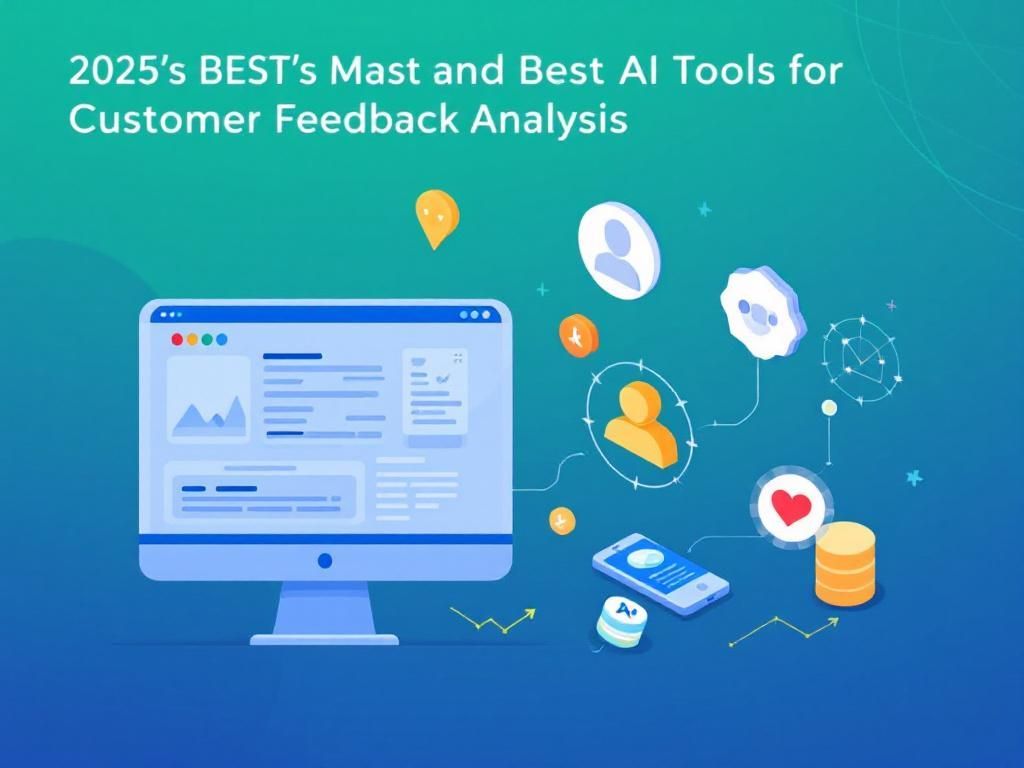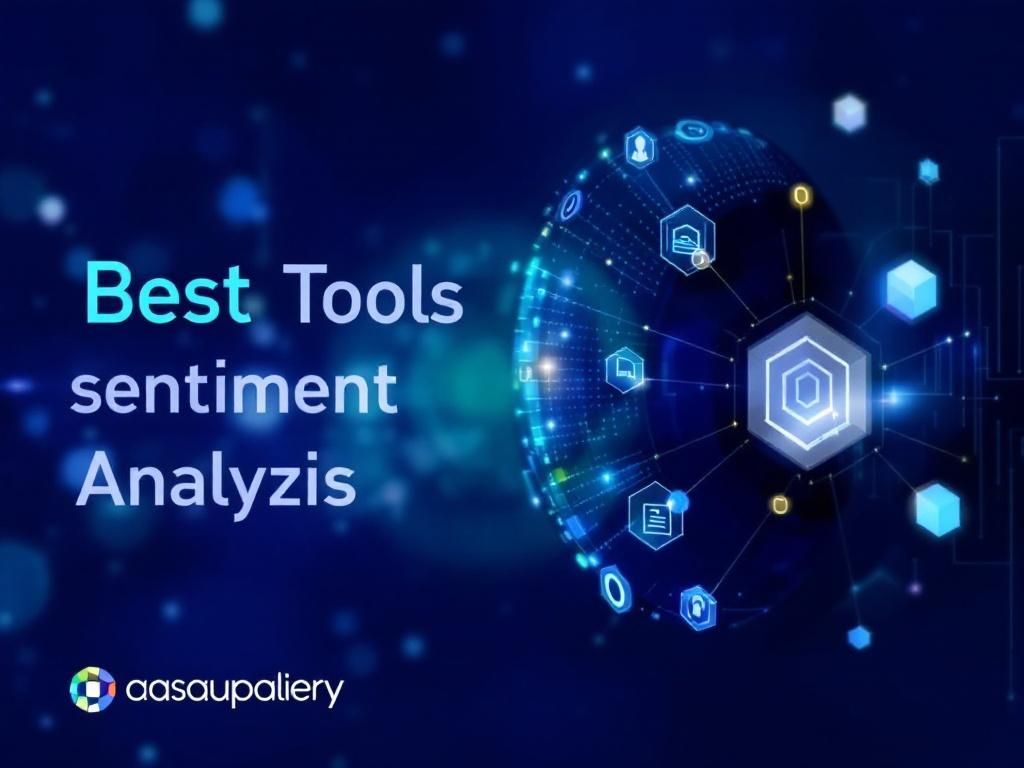As businesses strive to understand their customers better, the need for effective tools for sentiment analysis has never been more critical. With advancements in artificial intelligence (AI), companies can now leverage sophisticated algorithms to gauge customer sentiments and opinions from various data sources, including social media, reviews, and surveys. This article will explore the top AI tools for customer sentiment analysis in 2025, offering insights into their functionalities and advantages.
What is Sentiment Analysis?
Sentiment analysis is a process that involves using natural language processing (NLP) and machine learning techniques to determine the emotional tone behind a series of words. This technique helps organizations understand how customers feel about their products, services, or brand as a whole. It can classify sentiments as positive, negative, or neutral, providing actionable insights for businesses to improve customer experience.
Benefits of AI Tools for Sentiment Analysis
The integration of AI tools in sentiment analysis offers several advantages:
- Real-time insights: AI can analyze vast amounts of data quickly, providing businesses with immediate feedback on sentiment trends.
- Scalability: AI tools can easily scale to handle large datasets without compromising accuracy.
- Cost-effective: Automating sentiment analysis reduces the need for extensive human resources, saving costs in the long run.
- Comprehensive understanding: AI can analyze multiple data sources, providing a holistic view of customer sentiments.
Top AI Tools for Customer Sentiment Analysis in 2025
1. IBM Watson Natural Language Understanding
IBM Watson NLU is a powerful AI tool that provides advanced sentiment analysis capabilities. It utilizes machine learning algorithms to analyze text data from various sources.
| Feature | Description |
|---|---|
| Sentiment Analysis | Analyzes text to determine emotional tone. |
| Emotion Analysis | Identifies specific emotions like joy, anger, or fear. |
| Entity Recognition | Recognizes entities mentioned in the text for deeper insights. |
2. Google Cloud Natural Language
Google Cloud Natural Language is another top contender, known for its integration with other Google services, making it a versatile choice for businesses.
- Scalability: Handles large volumes of data efficiently.
- Multi-language support: Offers sentiment analysis in multiple languages, catering to a global audience.
- Sentiment Scores: Provides a sentiment score associated with analyzed data.
3. Microsoft Azure Text Analytics
Azure Text Analytics is part of the Microsoft Cognitive Services suite and provides a robust framework for sentiment analysis.
Key features include:
- Sentiment scoring for insights into customer feelings.
- Language detection to analyze sentiment in various languages.
- Key phrase extraction for identifying important topics in customer feedback.
4. Lexalytics
Lexalytics focuses on transforming unstructured data into actionable insights through sentiment analysis and text analytics.
Highlights of Lexalytics include:
- Customizable: Users can tailor the sentiment analysis to their specific industry.
- Social Media Integration: Easily integrates with social media platforms for real-time sentiment tracking.
- Multi-language Support: Compatible with various languages for global businesses.
5. MonkeyLearn
MonkeyLearn is a no-code AI platform that allows businesses to create custom sentiment analysis models.
Its features include:
- User-friendly interface for easy model training.
- Pre-built sentiment analysis models for quick implementation.
- API access for integration with other tools.
Factors to Consider When Choosing Sentiment Analysis Tools
When selecting a sentiment analysis tool, businesses should consider several factors:
- Accuracy: Evaluate the tool’s ability to accurately analyze sentiment and provide meaningful insights.
- Integration: Ensure compatibility with existing systems and data sources.
- Cost: Consider the pricing model of the tool and its fit within your budget.
- Support and Training: Check for availability of customer support and training resources.
Future Trends in Sentiment Analysis
The landscape of sentiment analysis is continually evolving. Here are some predicted trends for the future:
- Increased Use of AI: The integration of more advanced AI algorithms will enhance the accuracy of sentiment analysis.
- Voice and Audio Analysis: Tools will start analyzing audio data, such as voice calls, for sentiment detection.
- Emotion Prediction: Future tools may evolve to predict emotions based on historical data.
- Integration with Augmented Reality (AR): Sentiment analysis may be used to enhance customer experiences in AR environments.
Conclusion
In conclusion, the use of AI tools for customer sentiment analysis has transformed how businesses interact with their customers. As we move towards 2025, companies have access to a plethora of advanced tools that can provide deep insights into customer feelings and opinions. By leveraging these tools effectively, organizations can enhance customer satisfaction, develop better products, and ultimately drive business growth.
FAQ
What are the top AI tools for customer sentiment analysis in 2025?
In 2025, the top AI tools for customer sentiment analysis include advanced platforms like Brandwatch, Lexalytics, MonkeyLearn, and Google Cloud Natural Language. These tools utilize machine learning algorithms to analyze customer feedback and social media interactions.
How does sentiment analysis benefit businesses?
Sentiment analysis helps businesses understand customer opinions and emotions, allowing them to improve products, enhance customer service, and tailor marketing strategies effectively.
What features should I look for in AI sentiment analysis tools?
Key features to consider include real-time data processing, multilingual support, sentiment scoring, integration capabilities with existing systems, and customizable dashboards for reporting.
Can sentiment analysis tools handle multiple languages?
Yes, many modern sentiment analysis tools are equipped with multilingual capabilities, allowing them to analyze customer sentiment across various languages and dialects.
How accurate are AI tools in sentiment analysis?
The accuracy of AI sentiment analysis tools can vary, but leading platforms often achieve high levels of precision, especially when trained on large datasets specific to the industry.
What industries benefit the most from sentiment analysis?
Industries such as retail, hospitality, finance, and healthcare benefit significantly from sentiment analysis, as it helps them gauge customer satisfaction and adapt to market trends.



